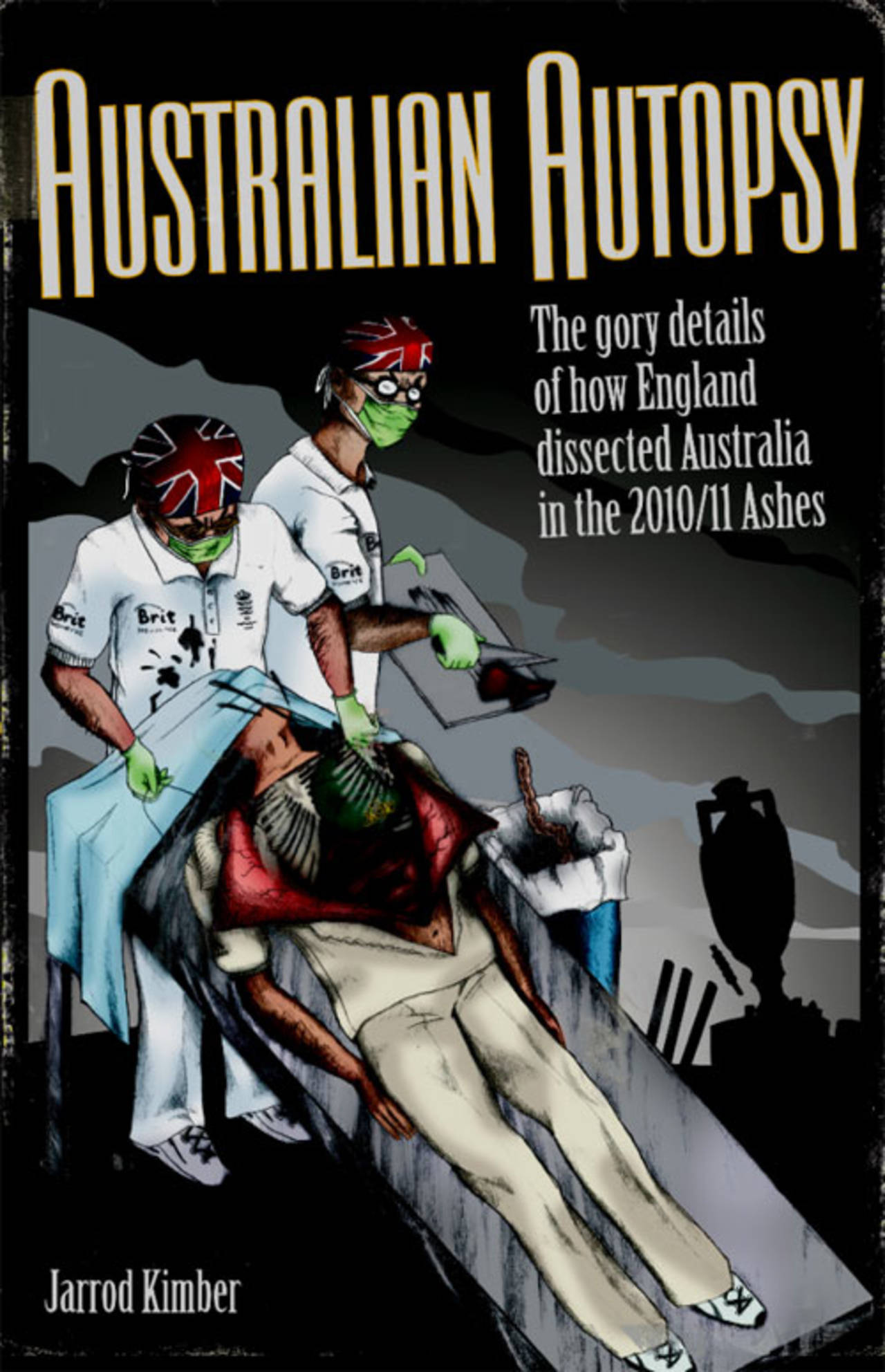Argus it ain't
A review of the last Ashes by a fan (and a sort of expert)
Sahil Dutta
10-Sep-2011

Pitch Publishing
I'm not sure who first warned never to judge a book by its cover but they were wrong. Australian Autopsy, at least, can be judged perfectly by its cover. The zombie-art image of a pair of surgeons in England shirts carefully teasing the heart and guts out of the Australian patient immediately tells you that this is no usual tour diary.
Like the book, it also captures how England beat Australia. "This wasn't a knockout, but a slow strangulation," writes the author, Jarrod Kimber. "England didn't do it with a brilliant cricket team; they have more support staff than Mariah Carey for a reason and that was to build a professional, well-drilled and organised cricket team that was better that its opposition."
The book, though, is about far more than just England's meticulous Ashes win. It's a deeply personal and extremely funny account of Kimber, his home country, cricket journalism, and life on an Ashes tour. Each page rages with insight, anger, humour, and most of all, originality. For the uninitiated, Kimber's cricketwithballs blog invented a style that spawned an army of imitators who could never quite match him.
It is fitting that the book's publication should follow so swiftly from the Argus report into Australian cricket. Australian Autopsy is the alternative review that examines the erosion of professionalism in the Australian set-up. Kimber takes aim at the selectors especially, for their failure to respond to countless batting collapses, and also at a wider culture of unaccountability at Cricket Australia.
Through the book the gargantuan alter-ego of cricketwithballs is revealed, inevitably, to be a more sensitive personality. Kimber is returning to Australia for the first time in three and a half years, during which period he has just about broken into the magic circle of mainstream cricket journalists. He remains, though, something of an outsider, with neither the financial stability nor the polished tones of those who populate much of the press box. It makes for both an expert's and fan's view, reading like beer-drenched, grimy fantasy bar conversation.
After Ponting's second-innings dismissal at the MCG, which Kimber frequented in his boyhood, he writes, "My stomach felt like shit, my head hurt and I wished I was somewhere else. It hit me really hard... As a batsman he was one of the best I had ever seen or would ever see... When he was in control of the game he was in control of the Test match. It felt like he wasn't batting for any other reason other than to put his side into the best possible position, and most champion batsmen aren't like that."
During the series, Kimber teamed up with Sampson Collins to create the video podcast Two Pricks at the Ashes. It became enough of a success for the format to become part of ESPNcricinfo's coverage as The Chuck Fleetwood-Smiths, and the book describes how the "bullshit" dream came good. Much like Australian Autopsy, Two Pricks said much about how the media is changing.
Kimber's journey shows how the digital age has pierced through the closed print club. More writers - from in and out of the press box - now file more copy, more often, and are read by more people online. "There are so many words on cricket, it's hard to find new insight," Kimber writes. "A daily light-hearted video was a whole different medium. It was something that the cricket media hadn't done." The tension created by a coarse upstart sharing the stage with the established hacks is something Kimber revels in retelling in the book.
It is refreshing to read something so brazenly indifferent to the norm. As Kimber writes in the book, Michael Clarke has one of the most carefully assembled public presences in the game, yet he's the most disliked cricketer in Australia. Instead Doug Bollinger, untrained, clumsy but incapable of being anything but honest, is loved by the Aussie public. What's more, the advertisers - who Clarke is a product of - flock to Bollinger. There is something instructive about that. Other Ashes books might say all the right things, with quotes from all the right people, but this is the fix cricket sadists would really enjoy.
Australian Autopsy
Jarrod Kimber
Pitch Publishing

Jarrod Kimber
Pitch Publishing
Sahil Dutta is an assistant editor at ESPNcricinfo